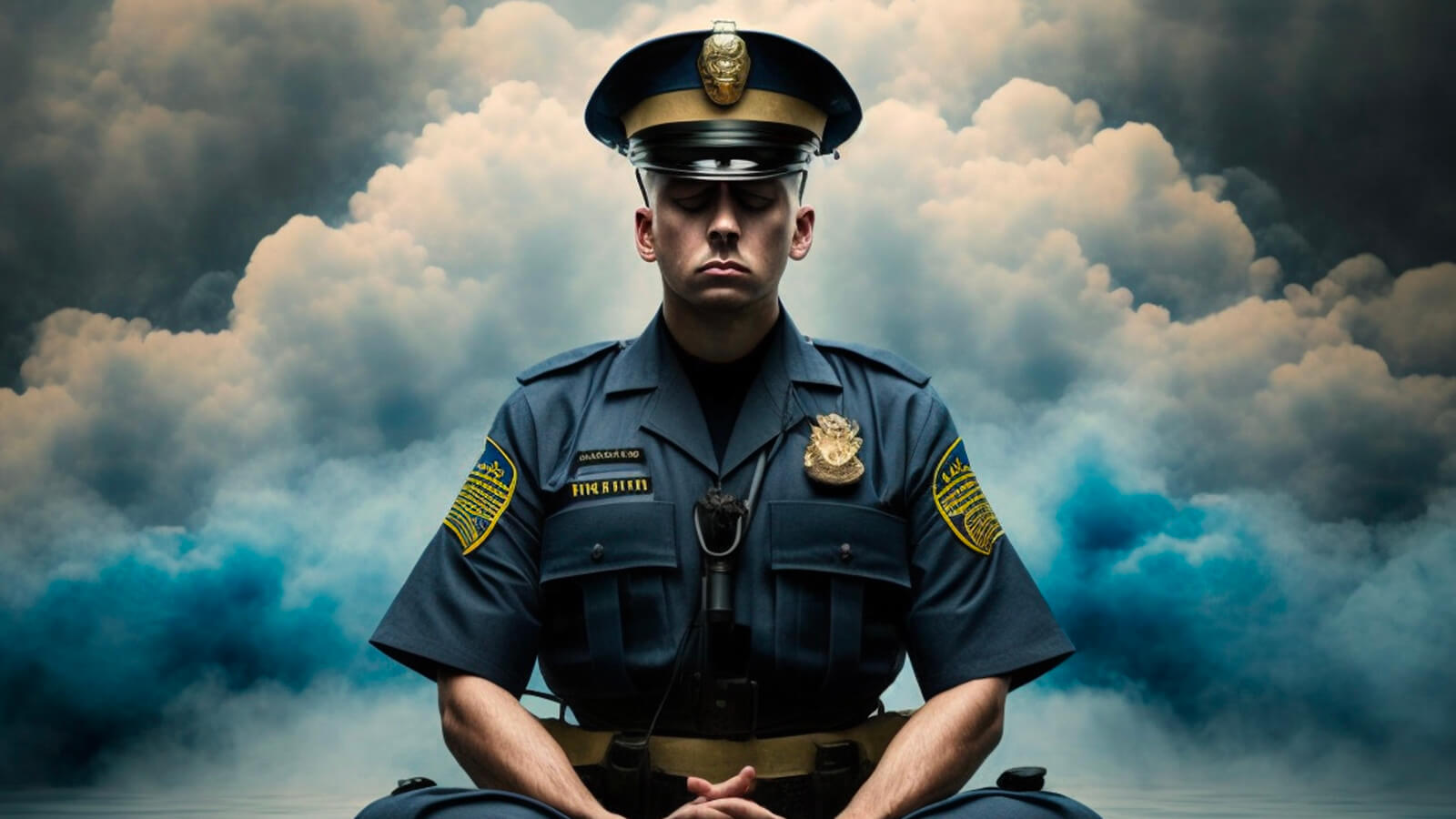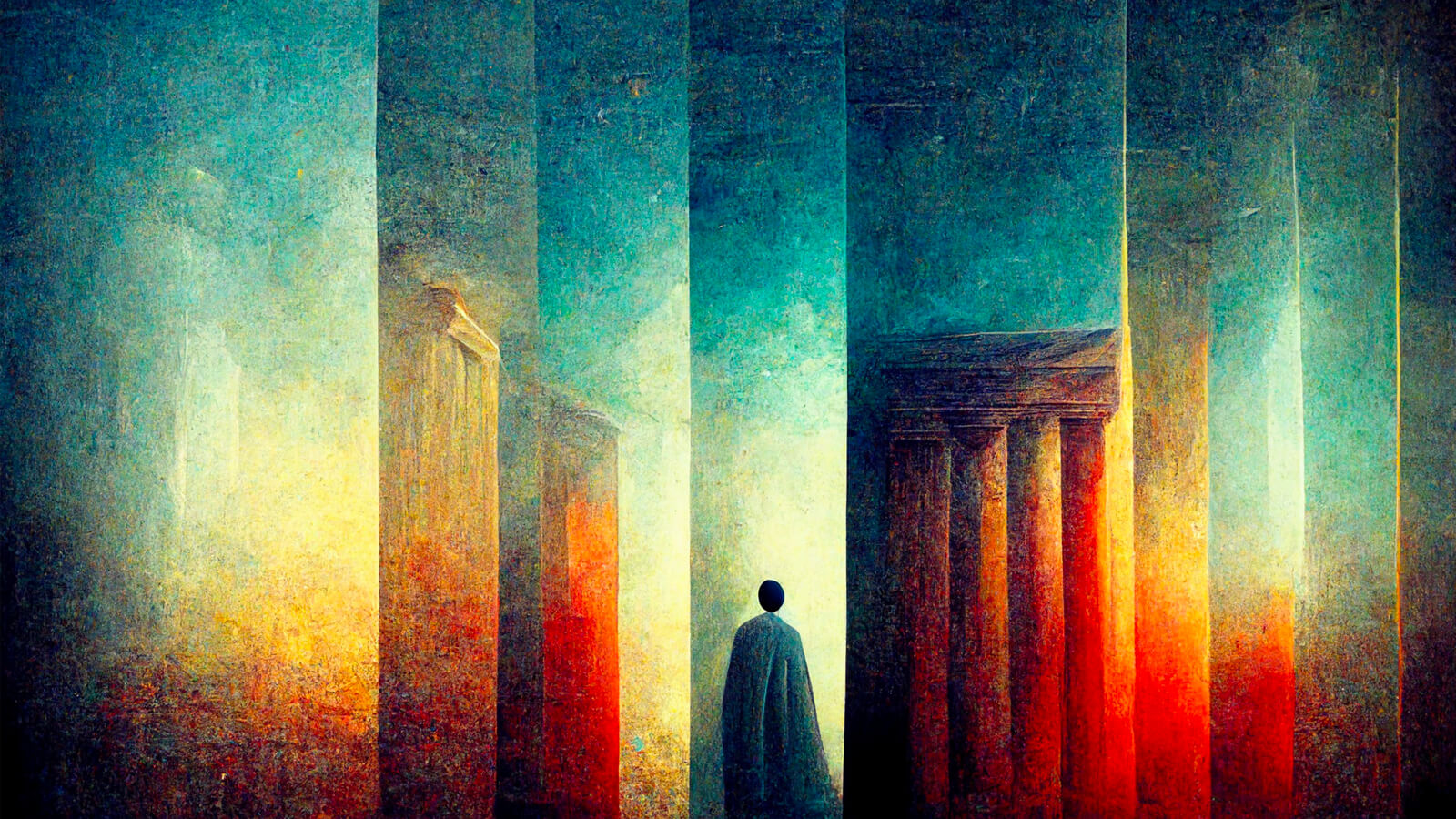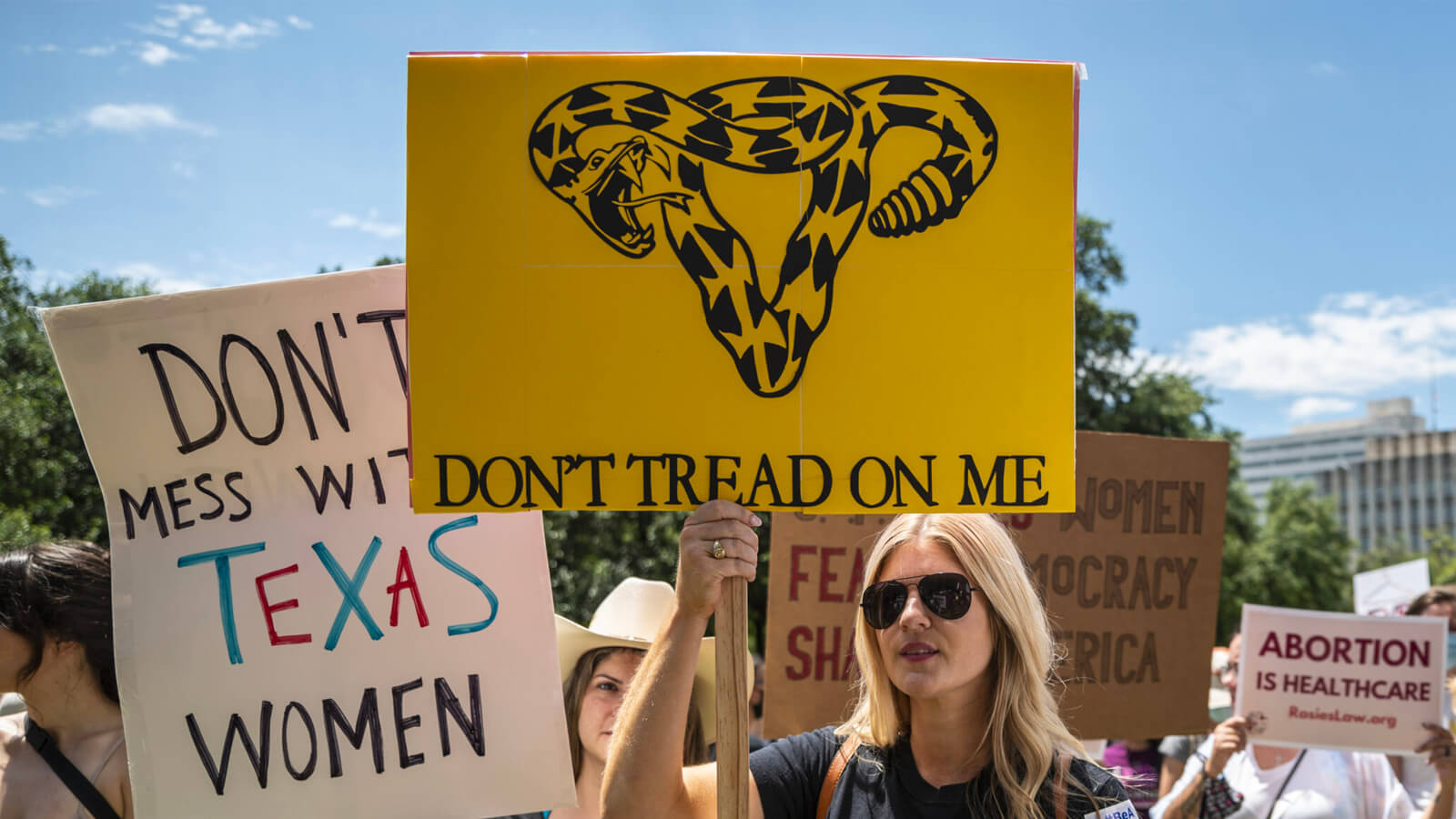Become a supporting member to watch the full conversation
Humanity is entering the Transformation Age, a new era of human civilization, with Integral Consciousness rising at its leading edge. Our members don’t use Integral Life as just another media subscription they use weekly or discard. Instead, most stay with us for years, using Integral Life to learn Integral Philosophy and build an integral mind slowly, methodically and when they need it. We’re here to help you shape the future that’s emerging no matter where your life takes you.
Get Full Access For $1 (30 days)* Or explore all membership plans → * Trial price for the first 30 days, then $20/month. Cancel or switch plans in 2 minutes at any time.n April 20th, 2021, former police officer Derek Chauvin was found guilty on all counts for the wrongful death of George Floyd, whose highly publicized death after being pinned to the ground for nine agonizing minutes sparked a new wave of #BLM protests all over the country throughout 2020.
Like everything else in the social media age, the question of policing in America has sadly become yet another theater for our ongoing culture war, rife with the same sort of tribalism, confirmation biases, and all-or-nothing mentalities that have infected every other important social challenge we are facing.
It has become predictably Rorschachian, where everyone sees only what they want to see according to their own political identities, allegiances, and focus-tested narratives. For many this verdict was celebrated as a rare moment of accountability for police officers who have too often circumvented any lasting consequences for their crimes. For others, this verdict represents an all-out assault on civilization itself as it further erodes the “thin blue line” that separates us from total barbarism.
But there are questions we simply cannot answer if we are only taking a partial and partisan view:
- Why do we see so many cases of apparent police abuse being recorded so frequently, but punished so rarely?
- What are some possible solutions that can help create more social trust for our police organizations, and a more peaceful society for all of us?
- What are the dangers of overreacting with the sort of #DefundThePolice and #ACAB (“all cops are bastards”) narratives that we see from the left? What are the partial truths contained within those narratives?
- Is the problem of policing in America better framed as a “Black Lives Matter” issue, or as a genuine “All Lives Matter” issue?
- What does an optimal police force look like as a healthy amber social holon, and what is preventing us from creating that healthy (and necessary) structure?
It’s easy to say something like “well, everyone is right” — but when it comes to cases like these, who is more right? After all, we as integralists want to include as many different perspectives as we can into our own, but it also remains true that some perspectives are simply more valuable, more high-resolution, and more true than others. And yet, even the views we regard as being “lower-resolution” can help us identify blind spots in our own perspective, or illuminate more fundamental issues that may otherwise go unnoticed.
Watch as Mark and Corey take a careful look at the Derek Chauvin verdict — and at the state of policing itself in America — as they offer their own personal views and try to sort through the conflicting narratives surrounding this tragically controversial cultural fault line.
Transcript Excerpt
Mark: So Joe Crystal was a cop in Baltimore, and an incredible TV show called The Wire really told a lot of the stories of what happened. But you know, this guy was just an amazing cop, just straight up as good as they get, and saw a handcuffed defendant brought back into a house and then he was viciously beaten by other officers. And he exposed it, and his career was ruined. Nobody wanted to work with him. People threw rats on his car. He was confronted time and time again, called him a rat. He was shifted around in the department from different agencies within, nobody wanted to work with him, to the point where he quit and became a sheriff in Florida.
A guy was beaten, and they all closed ranks, and they didn’t care.
[George Floyd was in] 2020. Joe Crystal was like 2005. And in the 1990s in New York city they talked about the “blue wall of silence”, and that was a real thing. But in Buffalo in 2020 — do you remember this elderly protestor that was shoved by the police, smacked his head, was bleeding? He was in a pool of blood, banged his head. Two officers were suspended, and then 57 officers resigned in disgust — not over what happened, but they resigned because they didn’t want to be a part of the riot team anymore because these guys were suspended for doing what they did. So it’s like the classic Nuremberg defense, you know, “we’re just following orders, why are you blaming us?” Again, this is the culture that makes this really difficult to get at, and why part of the answer is culture has got to change.Corey: You just nailed it. Because this is “the thin blue line” as it’s often called — which maybe we can call “the thin Amber line” — and I see this as a very common pattern with a lot of these Amber institutions that are themselves, for whatever reason, not being held accountable to Orange principles of law.
And I think what happens is, these Amber organizations wield power in a particular way. Power has a very particular meaning at Amber, and usually the kind of power that you seek is a totalizing power. Right? And when it comes to these power games, when these groups are for whatever reason unable to be held to account to Orange standards of law and order, then you see exactly these kinds of dysfunctions. This is when you start to see not only massive cases of abuse, but cases of abuse being covered up. Or if they even do come out to light, the accountability is so minor. A lot of these officers who end up actually getting fired from their jobs, what they’ll do is they’ll just pick up and move two towns over and get rehired again. And it’s like their career just kind of goes on uninterrupted. They just have to, you know, leave one community and go into another community, and there’s nothing about what got them fired in the first place that follows them through their career.
So it seems obvious that we have these pathological Amber structures. And here’s the irony: these Orange principles of law and order depend on these Amber organizations being healthy, being trustable, et cetera. One of the first points I made in the show is that we need Amber in order to contain Red, and there’s a lot of Red out there. There’s a lot of assholes out there who will not hesitate to kill another human being because they’re standing in their way. There’s no shortage of that in this country. So it’s a real threat. And being a police officer is not an easy job by any means. And yet if we, as a society, allow ourselves to get to a point where we mistrust these structures that are responsible for keeping us safe – this is where I partially agree with Tucker Carlson’s view that this case against Chauvin was an attack on American civilization itself. Well, you know, if we actually start tying our police officers’ hands and making it so that they cannot respond the way they oftentimes need to respond to these real threats, then yeah, we will see a genuine social collapse as a result. But I think it’s a bit of a straw-man leap there to say “therefore we don’t need any accountability whatsoever”.
I think it just speaks to the complexity of the problem. We need to both understand that we need a strong Amber institution when it comes to the police force, and because it is so Amber, and because it’s so important and fundamental to society itself, we need to have the trust that it is properly enfolded in with our Orange standards of law and order.
Mark: That’s where I was going to actually maybe take it a little bit with you, and you kind of said it, but that maybe part of the answer is policing actually needs to be an Orange structure with a healthy Amber enfoldment with units of Amber. But we’re seeing, as a structural element onto its own, that the pathological elements come through too much. And the reasons why we evolved to higher forms of human rights and liberties under Orange structures is that it’s really had to fully evolve to an Orange structure with Amber enfoldment within. And you know, that may get us to a better place, and then maybe a hundred years from now we’ll be arguing about how it needs to be Green with Orange units therein.
If you enjoy this episode, be sure to check out more episodes of Integral Justice Warrior. Watch them all for only $1!
Written and produced by Corey deVos
[ratemypost]
Previous Episodes of Integral Justice Warrior
Between Hope and History: An Integral View on Israel-Palestine
From Socrates to Social Media: Renewing Our Commitment to Free Speech
Peace, Love, and Politics: A Campaign to Transform America
Accountability Matters: A Call for Ethics, Empathy, and Equality
Transform the Police: A More Integral Approach to Law Enforcement
Taking Justice Personally
Abortion, Freedom, and the Sanctity of Life
Become a member today to watch this video presentation and support the global emergence of Integral consciousness
Membership benefits include:
Premium Content
Receive full access to weekly conversations hosted by leading thinkers

Journal Library
Receive full access to the growing Journal of Integral Theory & Practice library

Live Experiences
Stay connected by participating in Integral Life live events and discussions
Courses & Products
Get unlimited 20% discount off all products and courses from our friends and partners

Free Bonus Gifts
Download The Integral Vision eBook by Ken Wilber (worth $19 on Amazon) & The Ken Wilber Biography Series

Support of the movement
Support our mission of educating and spreading integral consciousness that is more critical than at any time in its history
About Mark Fischler
Mark Fischler is a Professor of Criminal justice and current program coordinator for the criminal justice and criminology programs at Plymouth State University. Prior to joining the Plymouth State faculty, he practiced law, representing poor criminal defendants for the New Hampshire Public Defender’s Office. Mark has worked extensively with alternative theoretical models in law, constitutional law, and higher education, and has published on integral applications to teaching, being a lawyer, and legal theory. His focus in the classroom is ethics and criminal procedure, and is well respected for a teaching philosophy that emphasizes recognizing the humanity and dignity of each student. Professor Fischler was awarded the outstanding teaching award at his university in 2014. He currently offers a weekly Spiritual Inquiry class through Satya Yoga Studio.
About Corey deVos
Corey W. deVos is editor and producer of Integral Life. He has worked for Integral Institute/Integal Life since Spring of 2003, and has been a student of integral theory and practice since 1996. Corey is also a professional woodworker, and many of his artworks can be found in his VisionLogix art gallery.




 November 18, 2023
November 18, 2023 





